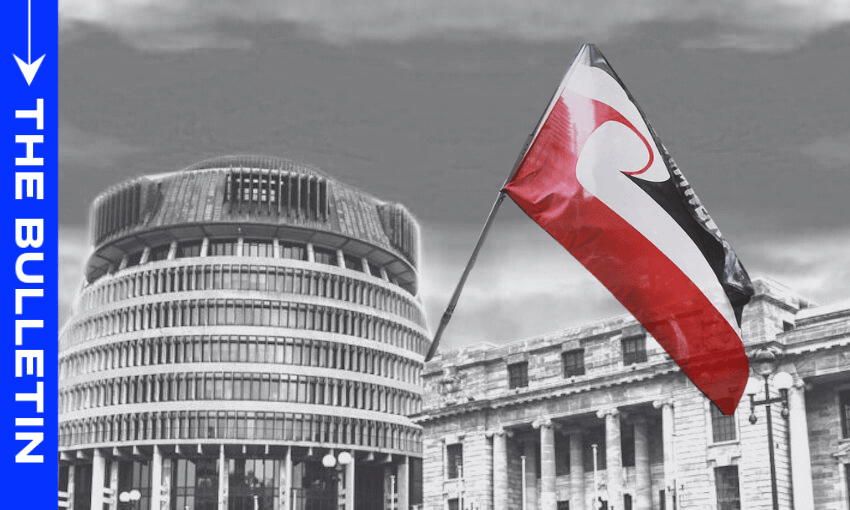A record-breaking consultation process ends with the select committee recommending the Treaty Principles Bill be scrapped – and Act claiming victory anyway, writes Catherine McGregor in today’s extract from The Bulletin.
To receive The Bulletin in full each weekday, sign up here.
Recommended for the bin
It was always going to be a bumpy ride, but few expected the Treaty Principles Bill to detonate quite so spectacularly. On Friday, the justice select committee recommended the bill not proceed – unsurprising, given its near-total rejection in the 300,000-plus submissions received. Of those, 90% opposed the bill, just 8% supported it, and the rest were on the fence. Submitters ranged from school students to the New Zealand Law Society and a phalanx of 50 King’s Counsel, reports Liam Rātana in The Spinoff.
Former PM Jenny Shipley called the bill “reckless” and warned it could lead to “civil war”; Dame Anne Salmond said the process was “dishonest”; Te Pāti Māori described it as a “campaign of misinformation and division”. The select committee held 79 hours of oral hearings across five intense weeks. As the crowds at November’s Hīkoi mō te Tiriti demonstrated, opposition to the bill was not only intellectual or legal, but widespread and deeply personal.
A reversal on the record
Last week, at the eleventh hour, a new controversy appeared in the near-exclusion of tens of thousands of submissions from the official record. The committee had wrapped up its work a month before the deadline, despite the record-breaking volume of submissions – an “appalling lack of process” according to Labour’s Duncan Webb. In the end, a late motion from Act’s Todd Stephenson ensured all submissions could still be tabled. As clerk of the House David Wilson tells RNZ’s Phil Smith, under normal rules, once a committee has reported a bill to the House, its work is over and it is unable to add anything more to the bill. The change means the committee “can continue to deal with [the submissions] as if it still had the bill” though they won’t be part of the report. Instead they’ll be added to the permanent archive, a move welcomed across party lines.
Second reading looms
Despite the recommendation to scrap it, the bill will still receive its second reading – possibly as soon as this week – thanks to the National-Act coalition agreement. It will almost certainly be voted down, but not before another round of speeches in the House. The NZ Herald’s Thomas Coughlan argues it’s time for the PM to front, given it’s been a “long time since we heard a Prime Minister deliver a speech of substance on Crown-Māori, summing up where the country has been and where it is going”. Luxon’s silence on the bill is in keeping with parliamentary precedent, but Coughlan makes the case that this is no ordinary bill. “Now is the time for such a speech – if not in the debate itself, then perhaps soon after the bill is dispatched.” Especially, he notes, as Luxon owes his premiership to the compromise that let it come this far.
A political loss – or a strategic win?
No legislation means no treaty principles referendum – at least not this time. But Act leader David Seymour remains undeterred, arguing that “New Zealanders are ready to have this discussion”. Joel Maxwell, writing in Stuff, isn’t so sure the tide of opposition to the bill tells the full story. Public polling has shown a more nuanced picture, with a large chunk of the electorate unsure where they stand.
While most political parties have firmly rejected the bill, Act has gained something else: visibility and momentum. “Even as it gets the stink-eye from its coalition partners… Act can probably feel that even if it has not yet achieved its current goal in politics, it has succeeded politically,” Maxwell concludes. The bill may be headed for the legislative scrapheap, but the argument it sparked isn’t going away.
